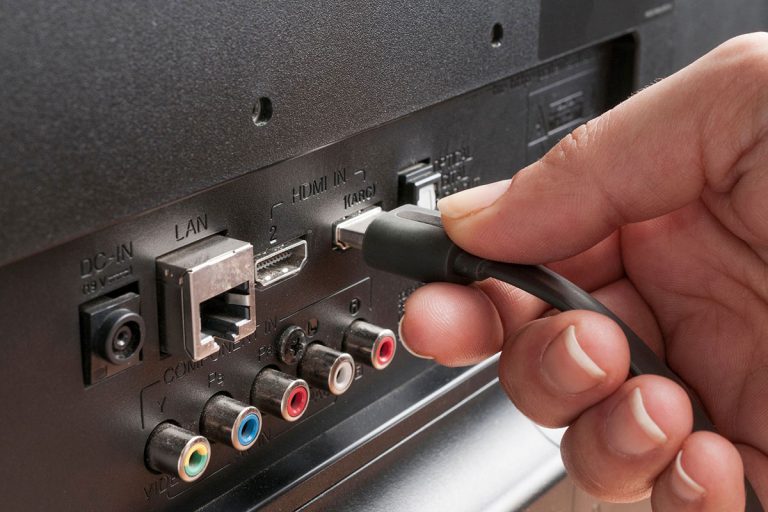If you’re short on time, here’s a quick answer to your question: Leaving a hotel without paying can result in severe consequences ranging from financial penalties, legal implications, and potential damage to your credit score.
This article delves into the various aspects surrounding this issue, covering the hotel’s policies, legal implications, financial consequences, ethical dilemmas, and real-world case studies.
We will also discuss how you might navigate the situation if you find yourself unable to pay your hotel bill, emphasizing the importance of communication and understanding your options.
Understanding the Hotel’s Policy on Unpaid Bills
When staying at a hotel, it’s important to not only enjoy your stay but also follow the hotel’s policies. Knowing the policies can save you from any unwanted surprises and unexpected expenses. One important policy to understand is the hotel’s policy on unpaid bills.
Importance of Knowing Hotel Policies
Knowing the policies of the hotel you’re staying at can help you avoid any misunderstandings that may arise during your stay. Understanding the hotel’s policy on unpaid bills can help you avoid any legal or financial consequences.
Typical Hotel Policy Regarding Non-Payment
Typically, hotels have a policy that requires guests to pay for all charges at the time of check-out. If a guest fails to pay, the hotel may charge the credit card on file or pursue legal action. The hotel may also place a hold on the guest’s credit card for incidentals such as room service charges or damages to the room.
It’s important to note that some hotels may also charge additional fees, such as late payment fees or interest charges, for unpaid bills.
Consequences According to Hotel Policy
The consequences for leaving a hotel without paying can vary depending on the hotel’s policies. In some cases, the hotel may pursue legal action against the guest for theft of services. The guest may also be barred from staying at that hotel chain in the future.
It’s important to always pay your hotel bill in full to avoid any legal or financial consequences. If you’re unable to pay your bill, it’s best to speak with the hotel’s management to see if payment arrangements can be made.
Legal Implications of Leaving Without Paying
If you’ve ever considered leaving a hotel without paying, you may want to think twice. Doing so can have serious legal consequences. Here’s what you should know:
Overview of the Law
When you check into a hotel, you’re entering into a contract with the hotel. That contract stipulates that you’ll pay for your room and any other services you use while you’re there. If you leave without paying, you’re breaching that contract.
While the specific details of the law vary depending on where you are, leaving a hotel without paying is generally considered theft of services. That means that you’re taking something of value (in this case, the hotel room and any services you used) without paying for it. Theft of services is a criminal offense, and it can come with significant penalties.
Potential Charges for Theft of Services
The penalties for leaving a hotel without paying can vary depending on the circumstances. In general, though, you can expect to face criminal charges. That could mean fines, community service, probation, or even jail time. The severity of the penalties will depend on factors like how much you owe, whether you’ve done this before, and how cooperative you are with law enforcement.
In addition to criminal charges, you could also face civil charges. If the hotel decides to sue you for the money you owe, you may be responsible for paying not only the original amount but also any legal fees associated with the case.
State and Country Specific Laws
It’s important to note that the specific laws regarding leaving a hotel without paying can vary depending on where you are. In some states or countries, it might be a misdemeanor offense with relatively minor penalties. In others, it could be a felony with much more severe consequences.
For example, in California, leaving a hotel without paying is considered a misdemeanor punishable by up to six months in jail and a $1,000 fine. In Texas, it’s considered theft of services, which can be a misdemeanor or felony depending on the amount owed. In the United Kingdom, the penalty for skipping out on a hotel bill can range from fines to imprisonment.
If you’re ever in doubt about the laws in your area, it’s always best to err on the side of caution and pay your hotel bill in full before you leave. Not only will you avoid potential legal trouble, but you’ll also be doing the right thing.
Financial Consequences
It may be tempting to leave a hotel without paying if you are facing financial difficulties or other personal issues. However, doing so can have serious consequences that can ultimately make your situation even worse. Three of the most significant financial consequences of leaving a hotel without paying include credit card charges, a potential for a damaged credit score, and the debt collection process.
Credit Card Charges
If you leave a hotel without paying your bill, hotel management may charge the total amount of your stay to the credit card on file. This can be a significant financial burden if your credit card has a low limit or if you were not aware of the charges. Additionally, if you dispute the charges with your credit card company, you may be subject to fees and interest charges until the matter is resolved.
Potential for Damaged Credit Score
Leaving a hotel without paying can also have a negative impact on your credit score. If the hotel management reports your unpaid bill to credit bureaus or collections agencies, this may appear as a delinquent account on your credit report. This can significantly lower your credit score and make it more difficult to obtain loans, credit cards, or other forms of credit in the future.
Debt Collection Process
If you leave a hotel without paying, the hotel management may also choose to pursue a debt collection process. This can involve legal action, collection agency involvement, and even a court judgment against you. These consequences can be long-lasting and may impact your ability to secure housing, employment, or other necessary services.
Ultimately, it is important to recognize that leaving a hotel without paying is not a viable solution to financial difficulties or other personal issues. Instead, consider reaching out to the hotel management to discuss payment options or seeking assistance from a financial counselor or other professional.
Ethical and Moral Implications
Choosing to leave a hotel without paying for your stay can have significant ethical and moral implications. By doing so, you are essentially stealing from the hotel and its staff, who rely on payment from guests to operate and provide a livelihood for themselves and their families. It is important to remember that hotels are businesses that rely on income to pay for expenses such as utilities, staff wages, and upkeep. Non-payment can result in financial losses for the hotel, which can have a ripple effect on the local economy.
Furthermore, leaving a hotel without paying can also damage your reputation and integrity. It is a breach of trust and can have negative consequences on your future travel experiences. Hotels may blacklist guests who have previously left without paying, making it difficult for them to find accommodation in the future.
Choosing to leave a hotel without paying can also have implications for your future behavior. It may start a pattern of unethical and immoral behavior, leading to further negative consequences in other areas of your life. Additionally, it can lead to legal consequences, such as being charged with theft or fraud.
If you are unable to pay for your hotel stay, it is important to communicate with the hotel staff and management. They may be able to work out a payment plan or offer alternative solutions to help you settle your bill. It is always better to be honest and upfront about your situation rather than resorting to non-payment.
Remember, choosing to leave a hotel without paying is not only illegal and unethical, but it can also have negative consequences on your future travel experiences and reputation. Always communicate with the hotel staff and management if you are facing financial difficulties, and prioritize ethical and moral behavior in all aspects of your life.
Real World Examples and Case Studies
Leaving a hotel without paying is considered theft and can lead to legal action. There have been several real-world examples of individuals who have faced the consequences of this action.
- In 2018, a man was arrested in Florida for leaving a hotel without paying. He had been staying at the hotel for several days and had accumulated a bill of over $700. The man was charged with theft and was required to pay restitution.
- In 2019, a couple was arrested in California for leaving a hotel without paying. They had been staying at the hotel for two weeks and had accumulated a bill of over $3,000. The couple was charged with theft and were required to pay restitution.
These examples show that leaving a hotel without paying can result in serious legal consequences. In addition to facing criminal charges, individuals may also be required to pay restitution for the amount owed.
Outcomes of These Case Studies
In both of the above case studies, the individuals were charged with theft and were required to pay restitution. The outcomes of these cases show that leaving a hotel without paying is a serious offense and can result in legal action.
If you are unable to pay for your hotel stay, it is important to speak with the hotel staff and try to come up with a solution. Many hotels may be willing to work with guests to come up with a payment plan or alternative arrangements.
Prevention and Solutions
Leaving a hotel without paying is not only illegal but also unethical. It is important to avoid such situations and have a plan in place if you are unable to pay. Here are some tips for preventing situations of non-payment:
- Make sure you have enough money or credit on hand to pay for your stay before checking in.
- Read the hotel’s cancellation and payment policies before booking your reservation.
- Double-check your bill upon checkout to ensure that all charges are accurate.
- If you are unsure about your ability to pay, communicate with the hotel staff in advance.
Despite your best efforts, there may be times when you are unable to pay for your hotel stay. In such cases, there are a few options available to you:
- Ask a friend or family member to lend you the money.
- Use a credit card to pay for your stay, even if you don’t have the funds available. However, be aware that this can result in high interest rates and additional fees.
- If you are in a foreign country, contact your embassy for assistance.
If you find yourself in a situation where you cannot pay for your hotel stay, the best course of action is to communicate with the hotel management. Explain your situation and work with them to come up with a solution. Many hotels are willing to work with guests to find a payment plan or alternative solution.
Also Read:
Conclusion
In conclusion, the act of leaving a hotel without paying is a serious offense that can lead to severe consequences, such as legal penalties, damaged credit scores, and an irreversible impact on your ethical standing. It’s not just a financial issue but also a legal and moral one.
This article has sought to highlight the importance of understanding and complying with hotel policies, as well as the law. If you ever find yourself in a situation where you’re unable to pay your hotel bill, remember that communication is key, and there may be options available to you. It’s always better to confront the problem rather than run away from it.






